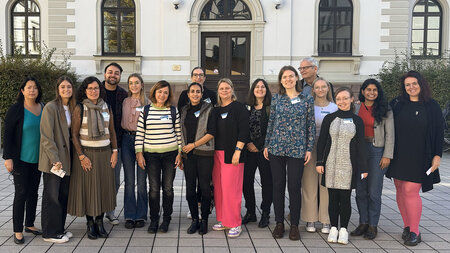Research
How can a combination of psychology, physiology and physics contribute to a better understanding of the fascinating capacities of human beings? And how can this knowledge be used to improve technical systems?
The Cognitive Systems lab focuses on human sensation and cognition with special emphasis on auditory perception and on changes of sensory and cognitive processes across the lifespan. Specific research foci lie in the areas of sensory prediction as well as the influence of experience and expectation, in the fields of learning and memory, in the cognitive interpretation of sensory ambiguity, in the combination of information from different sensory modalities as well as in the intra- and intermodal orienting of attention and resource distribution. Methodological emphasis lies on the development of psychophysical procedures for data collection and analysis and on the application of psychophysiological methods (mainly electroencephalography [EEG]) for capturing sensory and cognitive processes. From the application perspective, the group deals with using principles of sensory and cognitive information processing for the design of warning and alarm signals as well as for the exploration of nanomechanical material properties.
The following projects give representative examples of the lab’s research focus:
|
|
More detailed information about the groups' research is available in our list of publications and grants. Please visit the equipment page for some impressions from the lab.








